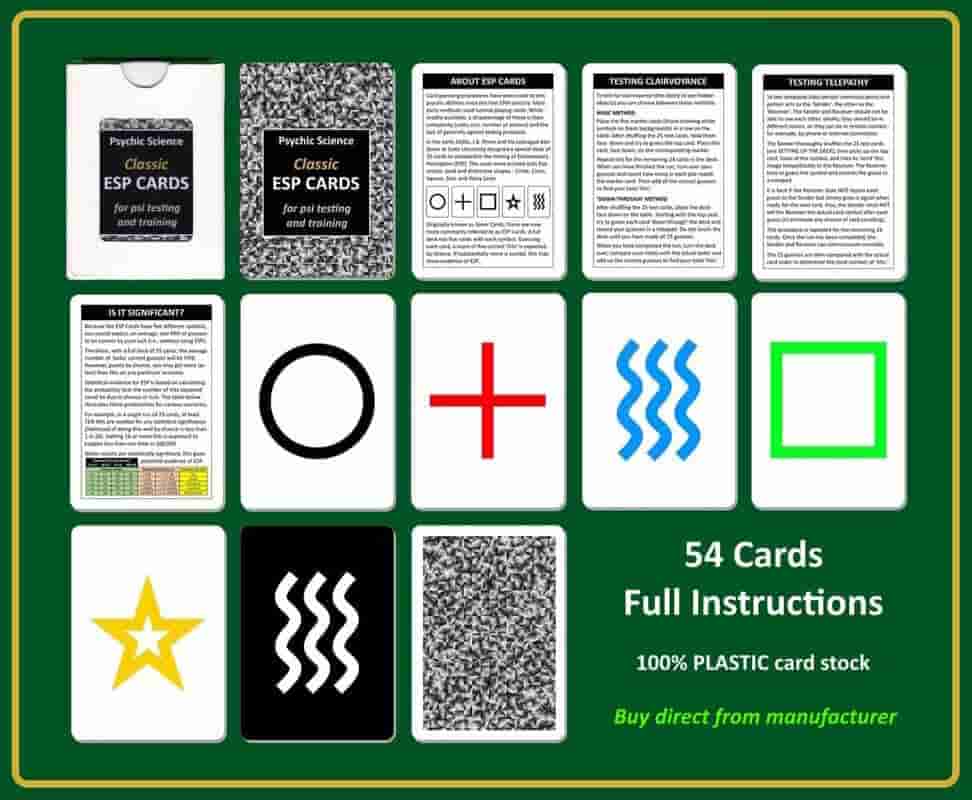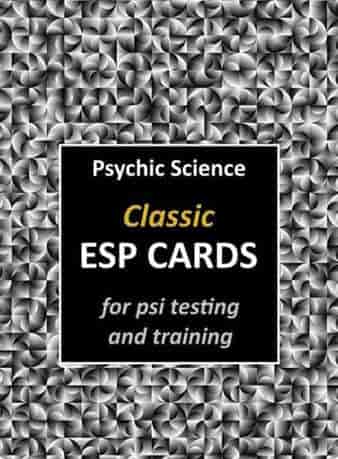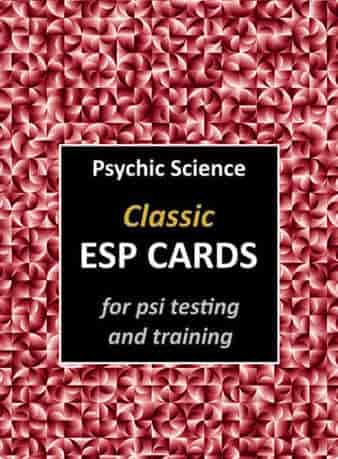Classic ESP Cards
For psi testing and training
About ESP Cards
Card-guessing has been used as a method for testing psychic abilities since the early days of the Society for Psychical Research in the late 19th century. Until the 1930s, these tests generally used ordinary playing cards. However, the complexity and variability of playing card designs (color, suit, number, picture) means they are less than ideal as ESP targets. There were also no widely accepted testing procedures.
For this reason, ESP Cards (often called 'Zener Cards') were designed in the 1930s by perceptual psychologist Karl Zener for his colleague J.B. Rhine. Rhine used these cards extensively for experiments in extrasensory perception (ESP), including telepathy, clairvoyance, and precognition.
Five symbols were chosen for the cards (Circle, Cross, Wavy Lines, Square, and Star).

These five ESP designs have the advantage of being easily recognized, clearly different from each other, and fairly equal in size, emphasis, and response preference. Using just five distinct symbols also simplified the procedures and statistical analysis of card-guessing experiments.
A standard ESP deck consists of 25 ESP cards, five of each symbol. To test for ESP, the cards must be well shuffled by the experimenter. The participant then attempts to guess each card as it is selected from the deck. By chance, five correct guesses are expected from 25 cards. For more information on different card guessing procedures and analyses, see our Advanced ESP Test.
Classic ESP Cards by Psychic Science
You can now buy our specially designed set of Psychic Science Classic ESP Cards, direct from the manufacturer.
This 54-card poker-size set contains:
-
25 Black symbol ESP Testing Cards (5 x Circle, 5 x Cross, 5 x Square, 5 x Star, 5 x Wavy Lines).
-
20 x Color Symbol ESP Testing Cards (5 x Red Cross, 5 x Green Square, 5 x Yellow Star, 5 x Blue Wavy Lines).
These can be combined with the 5 Black Circles to create a colored set of 25 ESP Cards.
-
5 x White symbol on black background Marker Cards (1 x Circle, 1 x Cross, 1 x Square, 1 x Star, 1 x Wavy Lines).
These can be used as placeholders when making each guess.
-
4 x Explanation Cards (double-sided), including a brief history of card-guessing procedures, together with full instructions for testing both clairvoyance and telepathy.
The cards are printed on high quality, durable and wipe-clean, 100% PLASTIC card stock, and the deck is presented in an all-white window tuck box.
You can choose either BLACK or RED backs.
Card Examples

Print your own ESP Cards
If you would prefer to print out your own set of 25 standard ESP Cards, we also offer a FREE PDF of simple ESP designs (black symbols only), with basic testing instructions.
The PDF has been formatted to be printed on either standard European A4 or American Letter card stock. Alternatively you can use Avery Business Card Stock (A4 or Letter).
Note that these print-your-own cards are small, and produce a relatively low quality deck. They are recommended only for casual use and demonstration purposes.
Click the button below to open the free ESP Cards PDF.


